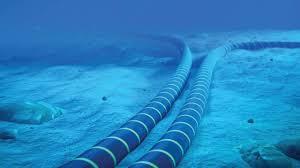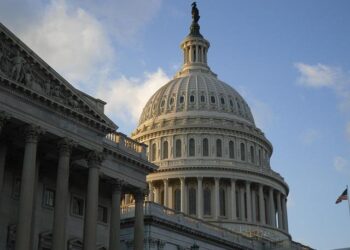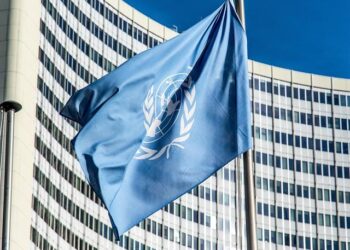European prosecutors have launched an investigation into the East Med cable project, raising new scrutiny over the ambitious infrastructure initiative aimed at linking the Eastern Mediterranean region’s energy networks. The probe, announced by Reuters, focuses on potential legal and regulatory breaches surrounding the multinational effort to enhance electricity transmission between Greece, Cyprus, and Israel. As the project faces increasing pressure amid geopolitical and environmental concerns, authorities are seeking to ensure compliance with European Union rules and safeguard transparency in the execution of this strategic energy corridor.
European Prosecutors Investigate Compliance and Environmental Concerns in East Med Cable Project
European prosecutors have launched a thorough investigation into potential compliance breaches and environmental risks linked to the East Med cable project, a critical infrastructure endeavor connecting several Mediterranean countries. Key concerns revolve around adherence to EU regulations governing ecological protection and transparency in awarding contracts. Authorities fear that possible oversights during the project’s approval stages might have sidelined crucial environmental impact assessments, triggering a probe to ensure accountability and sustainable development.
The inquiry focuses on multiple aspects, including:
- Environmental sustainability: Evaluating the project’s effect on marine ecosystems and protected habitats.
- Regulatory compliance: Verifying adherence to European Union procurement laws and anti-corruption measures.
- Stakeholder transparency: Ensuring fair disclosure and competition in contractual agreements.
| Aspect | Status | Potential Impact |
|---|---|---|
| Environmental Reports | Under review | Marine habitat disruption |
| Contract Awards | Being audited | Transparency concerns |
| Compliance Standards | Ongoing investigation | Regulatory penalties |
Impact on Regional Energy Security and Geopolitical Relations Assessed by Legal Experts
The ongoing investigation into the East Med cable project has sparked intensive debate among legal experts regarding its broader implications on regional energy stability and geopolitical alignment. Analysts emphasize that the project, intended to link energy markets across the Eastern Mediterranean with Europe, could redefine strategic alliances while simultaneously raising concerns about sovereignty and territorial rights. Legal authorities highlight that unresolved maritime boundary disputes and overlapping exclusive economic zones (EEZs) contribute to a complex legal landscape, potentially jeopardizing vital cross-border infrastructure.
From a regulatory standpoint, experts suggest that the probe may set significant precedents for how future transnational energy projects are scrutinized under European and international law. Key factors under review include compliance with environmental regulations, transparency in procurement, and adherence to EU energy market guidelines. The table below summarizes the critical legal and geopolitical variables currently influencing the East Med cable’s status:
| Factor | Impact on Regional Security | Geopolitical Effect |
|---|---|---|
| Maritime Boundary Disputes | High risk of conflict escalation | Complex alliance negotiations |
| Regulatory Compliance | Ensures project legitimacy | Influences EU energy market integration |
| Energy Supply Diversification | Enhances energy resilience | Shifts power balances in the region |
| Procurement Transparency | Mitigates corruption risks | Builds investor confidence |
- Strategic Claims: Nations involved are asserting exclusive rights that complicate negotiations.
- Energy Integration: The project is central to EU goals of reducing reliance on Russian gas.
- Legal Scrutiny: The inquiry could influence frameworks governing future multinational projects.
Calls for Enhanced Transparency and Regulatory Oversight Amid Ongoing Investigation
As the investigation into the East Med cable project gathers momentum, voices from across the political and industry spectrum have amplified demands for greater transparency and stringent regulatory oversight. Critics argue that the project’s complexity, coupled with substantial financial stakes, necessitates a more open disclosure of decision-making processes and contractual frameworks. Industry experts emphasize that opaque dealings not only undermine public confidence but also risk compromising the strategic and environmental objectives underpinning the project.
Key points raised during recent hearings and public forums include:
- Enhanced disclosure of funding sources and allocation mechanisms.
- Independent audits to verify compliance with international standards.
- Regular progress reports accessible to stakeholders and the public.
- Clearer frameworks to manage potential conflicts of interest.
| Aspect | Current Status | Recommended Action | |||||||||||
|---|---|---|---|---|---|---|---|---|---|---|---|---|---|
| Financial Transparency | Limited disclosure | Full public reporting | |||||||||||
| Regulatory Compliance | Under review | Independent audits | |||||||||||
| Stakeholder Engagement | Ad hoc updates | Scheduled briefings |
| Aspect | Current Status | Recommended Action |
|---|---|---|
| Financial Transparency | Limited disclosure | Full public reporting |
| Regulatory Compliance | Under review | Independent audits |
| Stakeholder Engagement | The Conclusion As the investigation unfolds, European prosecutors continue to scrutinize the East Med cable project amid allegations of irregularities. Stakeholders await further developments, which could have significant implications for regional energy infrastructure and cross-border cooperation in the Eastern Mediterranean. Reuters will provide ongoing coverage as more details emerge. ADVERTISEMENT |
















